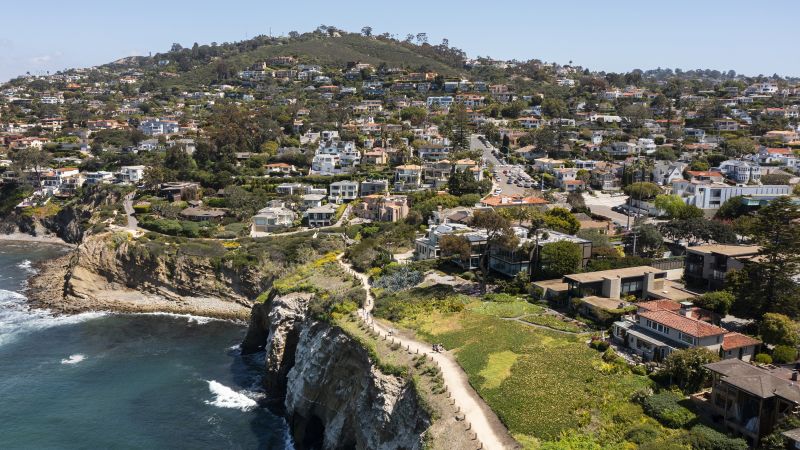- cross-posted to:
- [email protected]
- cross-posted to:
- [email protected]
The number of US cities where first-time homebuyers are faced with at least a $1 million price tag on the average entry-level home has nearly tripled in the past five years, according to new research.
A Thursday report from Zillow indicates that a typical starter home is now worth $1 million or more in 237 cities, up from 84 cities in 2019, underscoring America’s ongoing home affordability crisis.
“Affordability has been strained across the board,” Orphe Divounguy, a senior economist at Zillow, said. “We see the largest number of million-dollar starter homes in expensive coastal markets. We see them in markets with very low homeownership rates and we see them in markets with more building regulations.”



As long as people are selling and buying houses what’s the problem?
Removed by mod
The people with a 5 bedroom house could sell for so much money they wouldn’t care about the tax bill at the new place. Going from 5 bedrooms to two bedrooms means you could outright buy the new place and have 2 million dollars left over. At that point you’re crying into your Scrooge sized bank account about property taxes.
And if you’re worried about the people who bought condos or other small city homes staying there until they die, that’s the point. The entire point was to prevent people being pushed out of their homes.
It never stopped people from buying a smaller house or moving for new jobs. Not building enough housing to cover the natural rise in population is the reason we are here. Insisting that all new housing be single family detached housing in suburbs is why we’re here. Those are far more impactful things than the people who just never move.
They may not have much money left over after downsizing, however. In markets like California the value is almost entirely from the land. The comparative value of the house (even a 5 bed) is comparatively negligible. So a 5 bed on a small plot would cost almost the same as a 1 bed on the same plot. In Silicon Valley it’s really common to just buy a house and knock it down and rebuild, since the cost of building a new house is much less than the cost of the land.
It’s a genuine issue that the liquidity of the real estate market is impacted by this.
You’re assuming a lot there though. Why would a 1 or 2 bedroom have a plot of land the same size as a 5 bedroom? You can go look at the average prices and there very much is a difference.
This is wildly incorrect in many cities, likely the ones the article of talking about.
Size has so little relevance to cost these days that there is no logical way to downsize. The mortgage doubles whether they sell and buy a house of the same size or one half as big.
What are you talking about? Here’s 4 bed houses in La Jolla, San Diego.
And here’s 2 bed houses in the same community.
Size very much has relevance. Where people are locked in is they got a starter home in the past decade, (or 2) and the price to move into a larger house is so much that not only are they wiped out on any windfall, they’re also back on another full 30 year mortgage at a higher rate, and higher total payoff amount.
Downsizing is easy.
Literally cannot downsize. By that I mean people will be in a house that’s 2500+ sqft and their mortgage might double moving to literally any house in the city regardless of size. Most people don’t actually want a (poorly made cheap pos) mansion twenty or thirty minutes further from civilization, but that’s all that’s legal to build.
You’re just wrong. Even the worst places for housing allow for downsizing. There’s always the possibility that someone couldn’t pay the higher monthly amount for another reason, like having structured debt payments. But generally speaking downsizing is easy. The windfall from selling covers the new house, in the same neighborhood, and literal decades of taxes and maintenance, longer than you will live unless medical science makes a breakthrough.